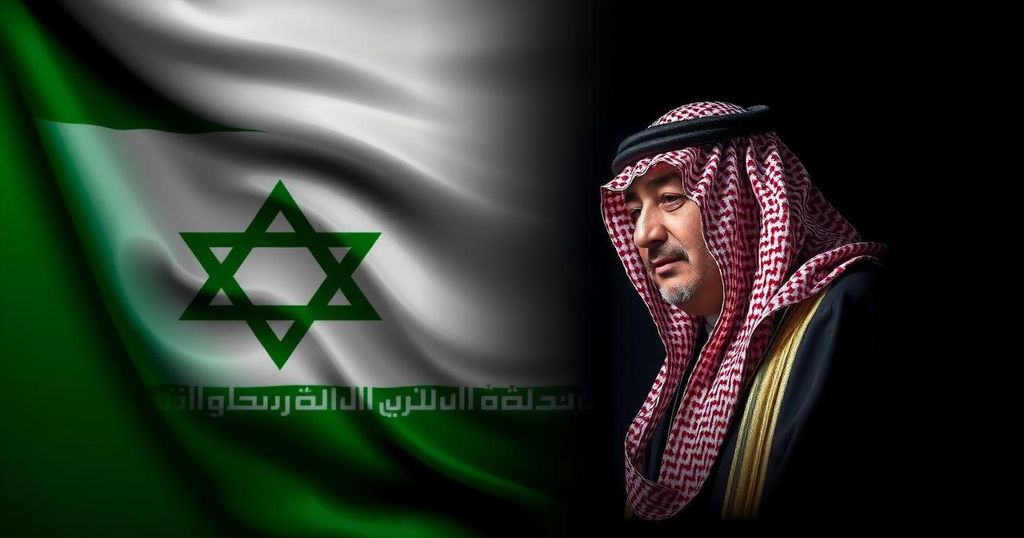Global news
ARAB LEAGUE, ARAB LEAGUE AND ORGANIZATION OF ISLAMIC COOPERATION, ARABIA, ASIA, BIN SALMAN, CONFLICT, GAZA, GAZA CONFLICT, GAZA STRIP, IRAN, ISRAEL, ISRAELI-PALESTINIAN CONFLICT, LEBANON, MBS, MIDDLE EAST, MIDDLE EAST CONFLICT, MOHAMMED BIN SALMAN, NORTH AMERICA, OIC, ORGANIZATION OF ISLAMIC COOPERATION, PALESTINE, RIYADH, SAUDI ARABIA, U. S, UNITED STATES, US, WAR CRIMES, WEST
Fatima Khan
0 Comments
Shifting Alliances: Saudi Arabia’s Pivot towards Iran and Criticism of Israel
Crown Prince Mohammed bin Salman of Saudi Arabia criticized Israel at a recent summit, calling for international action against Israeli aggression towards Palestinians. This public condemnation signals a shift in Saudi foreign policy as Riyadh re-engages with Iran amid concerns about U.S. support under the Biden administration, complicating the prospects for Israeli normalization. MBS’s comments reflect deeper strategic interests and a reevaluation of alliances in the increasingly complex Middle East.
In a significant shift in Saudi foreign policy, Crown Prince Mohammed bin Salman (MBS) recently criticized Israel during a summit with the Arab League and Organization of Islamic Cooperation (OIC) in Riyadh. He called on the international community to halt Israeli actions against Palestinians and expressed strong condemnation of what he termed as genocide against the Palestinian people. This marked a departure from earlier indications that MBS was ready to normalize relations with Israel, highlighting the complexities of Middle Eastern geopolitics, particularly Saudi Arabia’s growing rapprochement with Iran. MBS’s comments reflect a pragmatic approach to regional stability amid perceived shifts in U.S. support after the Biden administration took office. A reconciliation between Saudi Arabia and Iran, brokered by China, has raised questions about the Kingdom’s strategic priorities and alliances. Analysts suggest this reconciliation may complicate efforts for an Israeli normalization agreement, as some view it as a sign of U.S. and Israeli weakness. In light of this, MBS’s public statements appeared aimed not only at reaffirming support for the Palestinian cause but also at signaling to the U.S. the Kingdom’s discontent with its security guarantees. The dynamic nature of U.S. relations with both Israel and Iran has forced Saudi Arabia to reevaluate its position, recognizing that it cannot confront Iran militarily at this time. The fragility of U.S. commitment, as demonstrated in various international crises, has influenced MBS’s strategic choices, suggesting a desire to carve out a more independent path that prioritizes Saudi interests. Despite admiration for Israel’s military prowess, MBS appears cautious about relying on an unpredictable U.S. and seeks to understand its policy direction on the Iran-Israel conflict moving forward. Recent commentary indicates that MBS’s words were not solely directed toward Israel; rather, they served as a message to Washington regarding his concerns about the U.S.’s stance and the future of regional security arrangements. The juxtaposition of Saudi Arabia’s relations with Iran and its complex engagement with Israel speaks to an evolving reality in Middle Eastern politics, requiring careful navigation of alliances for both economic and security purposes.
The recent statements by Saudi Crown Prince Mohammed bin Salman reflect the broader geopolitical landscape of the Middle East, characterized by shifting alliances and strategic realignments. Saudi Arabia’s historic rivalry with Iran and the quest for normalization with Israel have created a multifaceted diplomatic environment. MBS’s comments during a recent summit suggest an attempt to recalibrate relations in response to changes in U.S. foreign policy and the dynamics of regional power. With the Biden administration’s approach diverging from that of his predecessor, the crown prince’s public criticism of Israel signals a desire to assert Saudi interests amid fears of a diminished U.S. role.
In conclusion, the recent public criticism of Israel by Crown Prince Mohammed bin Salman underscores a pivotal moment in Saudi Arabia’s foreign policy. As the Kingdom navigates complex alliances with Iran and seeks clarity on U.S. commitments, MBS’s remarks reflect a strategic recalibration aimed at safeguarding national interests. The evolving geopolitical landscape highlights the importance of understanding the interdependencies among Middle Eastern nations and their varying approaches to regional stability.
Original Source: allisrael.com




Post Comment